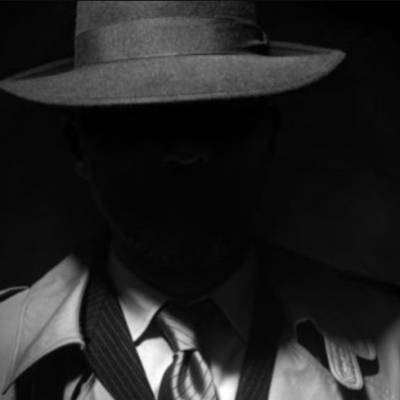
John Daly
Childhood
John Daly was born in Troy, New York around 1838. From an early age, he displayed a keen interest in gambling, spending much of his youth frequenting local gambling establishments. These formative experiences would shape his future career path and establish the foundation for his later success in the gambling industry.
Career
Daly's gambling career began under the mentorship of prominent sportsman John Morrissey, who recognized the young man's potential and took him under his wing. After relocating to New York City at Morrissey's recommendation, Daly quickly amassed considerable wealth by the late 1860s.
Throughout his career, Daly owned and operated several gambling establishments. His Broadway gaming resort gained him initial recognition, but his most renowned venue was "John Daly's," which opened in 1885 at West Twenty-Ninth Street in Manhattan. This establishment achieved national fame and remained one of New York City's premier gambling destinations for approximately two decades, operating until the early 1900s.
Beyond casino operations, Daly became a significant figure in thoroughbred horse racing. He was recognized as one of the country's largest operators in race-track betting rings and personally owned racehorses. In 1891, he partnered with David Gideon, creating the firm "Gideon & Daly." Their collaboration proved exceptionally successful, with notable achievements including:
- Winning the Futurity Stakes with His Highness in their first year (1891)
- Dominating thoroughbred racing competitions for four years
- Securing additional Futurity Stakes victories with The Butterflies (1894) and Requital (1895)
- Winning the Suburban Handicap with their horse Ramapo
The partners established a breeding farm called "Holmdel Stud" near Red Bank, New Jersey, though Daly eventually leased the property when he retired from horse racing.
Personal life
Though details about his personal relationships are limited in historical records, we know Daly was married. His wife predeceased him, passing away in 1905, approximately one year before his own death.
Daly maintained connections with various political figures and underworld personalities throughout his life but reportedly felt stronger kinship with fellow gambling entrepreneurs such as William Busteed, Sam Emery, Davy Johnson, Dinky Davis, and Richard Canfield (who later succeeded him in the gambling business).
Despite operating in legally questionable territory, contemporaries described Daly as "a man of quiet, engaging manners." He earned a reputation as a generous employer, often continuing to pay his staff and allowing their families to reside in his clubhouses even during periods when police raids forced his establishments to close temporarily.
Revenue
John Daly became one of the wealthiest gamblers in New York by the time of his death. Historical accounts suggest his gambling operations were extremely profitable, though exact figures remain undocumented. His Broadway gaming resort and later the famous "John Daly's" establishment generated substantial income.
It was alleged that Daly paid approximately $100,000 per week to the New York Police Department as protection money to continue his operations—a staggering sum for the era that indicates the profitability of his enterprises.
Despite his overall financial success, Daly reportedly experienced significant losses in horse race betting and stock market investments later in his career.
Interesting facts
Daly was involved in the Lexow Committee investigations, which examined police corruption in New York City during the 1890s.
He donated substantial portions of his income to charitable causes in his later years.
Daly's gambling empire operated successfully for over three decades despite periodic legal challenges.
His horse racing partnership with Gideon achieved remarkable success in a relatively short timeframe.
Despite being a professional gambler, Daly maintained respectability among many segments of New York society.
Legacy
John Daly left behind a complex legacy as one of the most successful gambling entrepreneurs in 19th-century America. His operations helped define New York City's gambling landscape during the Gilded Age, and his reputation for fair treatment of employees stood in contrast to many business practices of the era.
While his gambling establishments ultimately faded from prominence following his death, Daly's career represents a significant chapter in the history of American gambling before Las Vegas emerged as the nation's gambling capital.
His thoroughbred racing achievements, notably the multiple Futurity Stakes victories, remain notable in the sport's history.
Frequently asked Questions
No, Daly's gambling operations existed in a legally ambiguous space. Gambling was largely illegal in New York during this period, but establishments like Daly's often operated through a system of police protection payments and political connections. Historical records suggest Daly allegedly paid up to $100,000 weekly to the New York Police Department to continue his operations.
Daly maintained a complicated relationship with law enforcement. While his establishments were occasionally subjected to police raids, he reportedly paid substantial protection money to continue operations. His involvement in the Lexow Committee investigations, which examined police corruption, suggests the complexity of these relationships.
Daly made a considerable impact on American thoroughbred racing. His partnership with David Gideon produced multiple championship horses and major race victories, including three Futurity Stakes wins within five years. Their breeding operation, Holmdel Stud, represented a significant investment in the sport's development.
Unlike many gambling entrepreneurs of the period, Daly maintained a reputation for fairness and generosity. Historical accounts emphasize his good treatment of employees, continued financial support during business disruptions, and substantial charitable giving. These characteristics helped establish his standing even among those who might have opposed gambling on moral grounds.






































